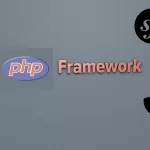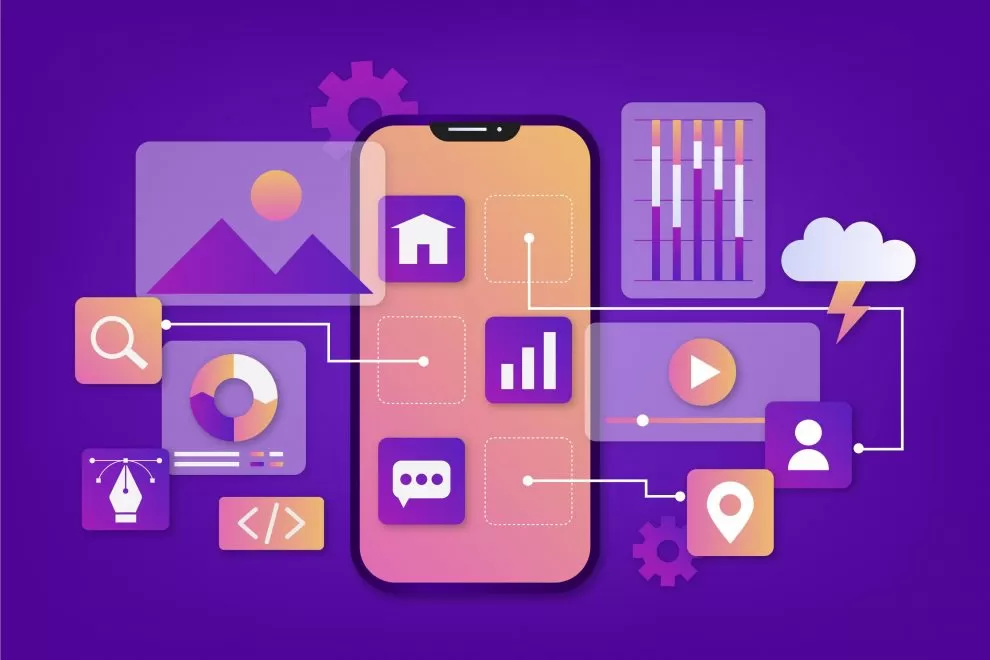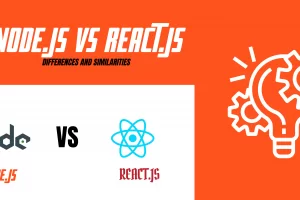In the dynamic realm of software development, the ability to scale applications effectively is no longer an option but a necessity. As the demand for innovative and responsive digital solutions continues to surge, developers are increasingly turning to the Laravel ecosystem as a trusted ally in this quest. “Laravel Scalable App Development” encapsulates a strategy that has become integral to the modern developer’s toolkit. In this blog, we’ll delve into the Laravel ecosystem and how it empowers developers to build scalable applications efficiently.
At its core, Laravel is not just a framework; it’s a comprehensive ecosystem. Known for its elegant syntax and robust tools, Laravel provides developers with the foundations they need to create applications that can grow seamlessly as demands increase. With the aim of unraveling the key components that make Laravel a standout choice for scalable app development, we’ll explore the framework, essential packages, automation tools, and the strong community support that ensures that developers can harness Laravel’s full potential to meet the challenges of a rapidly evolving software landscape.
Laravel Framework: The Foundation
At the heart of Laravel Scalable App Development lies the Laravel framework, a cornerstone of modern web application development. Laravel’s remarkable ascent in the world of software development can be attributed to its unwavering commitment to simplicity, elegance, and developer-friendliness.
Simplicity and Expressive Syntax:
Laravel is built on the bedrock of clean and expressive code, a foundational principle that streamlines the development process. Its elegant syntax ensures that developers can create and maintain large and complex applications without the encumbrance of convoluted code. This foundation not only fosters productivity but also paves the way for developers to focus on the core aspects of their projects rather than getting lost in the labyrinth of code intricacies.
As the building block of Laravel Scalable App Development, the framework is designed to facilitate code reusability and modularity. This approach ensures that your application remains highly maintainable even as it scales up to meet the demands of a rapidly evolving digital landscape. By adhering to Laravel’s principles, developers can confidently embark on their journey towards scalable app development.
Also Read: 40 Best Laravel Tools and Resources In 2023-24
Laravel Packages: Enhancing Functionality
In the world of Laravel Scalable App Development, the Laravel framework serves as the solid foundation, but it is the ecosystem of packages that truly elevates your application’s functionality. Laravel’s package system is a treasure trove of pre-built solutions, extending the framework’s capabilities and empowering developers to streamline their work and expand their application’s feature set.
A Wealth of Pre-Built Solutions:
Laravel packages, often referred to simply as “Laravel Packages,” offer a wide array of functionality that can be seamlessly integrated into your project. These packages cover a broad spectrum of needs, from authentication and authorization to payment processing and integration with third-party services.Streamlining Development with Laravel Packages:
Laravel packages are designed with efficiency in mind. They provide a modular approach to adding features to your application, reducing the need for extensive custom development. These packages can be easily installed and configured, often requiring just a few commands. This streamlined process ensures that developers can enhance their applications rapidly, which is particularly crucial when scaling up to meet growing demands.Community Contributions and Custom Packages:
The Laravel community plays a significant role in the development of packages. The open-source nature of Laravel encourages developers to create and share their own packages. This fosters a vibrant ecosystem of community-contributed packages that address a wide range of needs. When you encounter a specific requirement for your application, chances are that a Laravel package exists to simplify its implementation. If not, the Laravel ecosystem offers a framework for creating custom packages tailored to your unique project, ensuring that you’re never limited by the out-of-the-box solutions. This flexibility is a testament to the adaptability of Laravel in the realm of scalable app development.
Artisan Console: Automating Tasks
In the world of Laravel Scalable App Development, automation is a key component for boosting productivity and ensuring that routine tasks are executed consistently. The Laravel framework comes equipped with the Artisan console, a powerful command-line tool designed to streamline development tasks and enhance the efficiency of the entire development workflow.
Simplify Development with Artisan Commands:
Artisan offers a wide array of predefined commands, enabling developers to automate common development tasks. Whether it’s generating boilerplate code, managing database migrations, or creating custom commands, Artisan simplifies these processes through a straightforward and intuitive command-line interface. By reducing the manual work involved in routine tasks, developers can focus their energy on more creative and complex aspects of the application.Custom Commands and Extensibility:
While Artisan provides an extensive set of built-in commands, it also allows for the creation of custom commands tailored to the unique needs of your project. This extensibility ensures that you’re not limited by predefined functionality and can automate tasks specific to your application’s requirements. Whether it’s a task related to data synchronization, email notifications, or any other bespoke operation, Artisan offers the flexibility to adapt and evolve with your project as it scales.
Also Read: Reasons Why Laravel and SaaS Are an Ideal Match
Eloquent ORM: Streamlining Database Operations
Database operations form the core of most web applications, and in Laravel Scalable App Development, Eloquent ORM (Object-Relational Mapping) emerges as a valuable asset in simplifying and streamlining these essential tasks.
An Intuitive Approach to Database Interactions:
Eloquent ORM offers a powerful and intuitive way to interact with databases. It simplifies the process of querying databases and managing relationships between database tables. By using an expressive, object-oriented syntax, Eloquent makes database operations more accessible and readable for developers. This approach not only enhances code clarity but also reduces the complexity of database-related tasks, making it easier to work with data, especially as your application scales up.Maintainable Database Code:
One of the key benefits of Eloquent ORM is the maintenance of a clean and organized codebase. This is particularly critical as your application grows. With Eloquent, developers can write database queries that are both efficient and maintainable, ensuring that the database-related code remains comprehensible even as the application’s complexity increases. This code organization and maintainability are vital for keeping your application scalable and adaptable in the long run.
Blade Templates: Creating Dynamic Views
In Laravel Scalable App Development, the user interface plays a pivotal role in delivering a rich and engaging experience to your application’s users. Blade templates, a fundamental component of the Laravel ecosystem, offer an elegant and efficient solution for crafting dynamic views.
An Elegant Templating Engine:
Blade is a templating engine designed to simplify the process of creating dynamic views in Laravel applications. Its syntax is both elegant and straightforward, allowing developers to write templates that are not only highly functional but also easy to read and maintain. Blade templates are intuitive, making them a preferred choice for developers when it comes to rendering views, and they remain adaptable as your application scales.Template Inheritance and Reusability:
One of Blade’s standout features is its support for template inheritance. This feature enables developers to define a master layout and extend or include sections in child views, allowing for consistent design elements across the application. This approach enhances code reusability, as common elements like headers, footers, and navigation menus can be defined in a central layout and utilized across multiple views. Blade’s template inheritance is particularly advantageous when developing large applications, ensuring that the design remains cohesive and maintainable.Conditional Logic and Loops:
Blade templates go beyond the basics of rendering static HTML. They support the inclusion of conditional logic and loops, making it possible to create dynamic views that adapt to changing data. Whether you need to display different content based on user roles, iterate through data collections, or generate dynamic forms, Blade templates offer the flexibility to handle these scenarios seamlessly. As your application scales and becomes more data-driven, Blade templates remain a powerful tool for crafting dynamic, data-rich views.
Community and Support
In the ever-evolving landscape of Laravel Scalable App Development, the sense of community and support surrounding the Laravel ecosystem is a vital pillar. This vibrant community has been instrumental in propelling Laravel to its current prominence.
The Power of a Strong Community:
The Laravel community is a dynamic and active network of developers, enthusiasts, and experts who share a common passion for the framework. This community-driven approach is a valuable resource for developers navigating the challenges of scalable app development. Through forums, social media groups, and open-source collaboration, Laravel enthusiasts readily share knowledge, insights, and solutions. Whether you’re grappling with a complex coding issue or seeking advice on best practices, the Laravel community provides a supportive and responsive environment for seeking answers and guidance.Open-Source Contributions and Collaboration:
Laravel’s open-source nature encourages developers to contribute their own packages and solutions to the ecosystem. This collaborative spirit has resulted in a vast array of community-developed packages, tools, and resources that further enhance Laravel’s capabilities. As your application scales and you encounter unique challenges, the collaborative nature of Laravel ensures that you’re not alone in your quest for solutions. You can leverage the collective wisdom and experience of the Laravel community to find effective approaches to tackling complex issues.Updates and Long-Term Support:
Another benefit of the Laravel community is the commitment to keeping the framework up to date. Laravel’s creator, Taylor Otwell, actively maintains the framework, providing regular updates and security patches. This dedication to staying current ensures that Laravel remains a robust and reliable choice for scalable app development. Additionally, Laravel offers long-term support (LTS) versions, which provide extended support and maintenance for those who require stability and continuity in their projects.
Also Read: Laravel Security Best Practices – Features to Secure PHP Apps
Scalability Challenges
In the quest for Laravel Scalable App Development, it’s essential to acknowledge and address potential challenges that may arise as your application grows and encounters increased demands. Scalability is a multifaceted endeavor, and while Laravel provides a strong ecosystem, certain challenges should be anticipated and managed effectively.
Performance Optimization:
As your application scales, maintaining optimal performance becomes a top priority. Increased user traffic and data volumes can strain server resources, potentially leading to slower response times. It’s imperative to implement performance optimization strategies, such as database indexing, caching, and load balancing, to ensure your application remains responsive under heavy loads. Laravel offers tools and practices to assist in these areas, but proper planning and ongoing performance monitoring are crucial.Database Scaling:
Database operations are often a bottleneck when scaling applications. While Laravel’s Eloquent ORM simplifies interactions with databases, you may need to consider more advanced database strategies as your application grows. Horizontal and vertical database scaling, sharding, and master-slave replication are techniques that can help distribute the database workload and maintain data integrity. Adapting your database architecture to accommodate growing data sets and user interactions is essential for sustainable scalability.Load Handling and Resource Allocation:
Handling increased loads is a key scalability challenge. In a Laravel application, it’s critical to set up proper load balancing, which distributes incoming traffic across multiple servers. Load balancers ensure that no single server becomes overwhelmed and that your application remains available and responsive, even during traffic spikes. Effective resource allocation and monitoring can prevent performance degradation and downtime.Caching Strategies:
Caching is a fundamental technique for reducing the load on your server and database. Laravel integrates with caching mechanisms like Redis and Memcached, which can significantly improve response times by storing frequently accessed data in memory. Implementing an efficient caching strategy is crucial for enhancing the user experience and managing server load as your application scales.Automated Testing and Continuous Integration:
Quality assurance becomes more complex as your application grows. Scaling apps require robust testing and continuous integration practices to maintain stability. Laravel supports automated testing and integrates seamlessly with popular CI/CD (Continuous Integration/Continuous Deployment) platforms. Regular testing and automated deployment help catch bugs, ensure compatibility with different environments, and prevent regressions.
Scaling with Laravel Horizon
Scaling is an integral part of Laravel Scalable App Development, and Laravel Horizon is a powerful tool in your arsenal when it comes to managing and optimizing background task processing in a scalable application.
Real-time Insights into Queues:
Laravel Horizon provides an intuitive and real-time dashboard for monitoring the performance of your application’s queues. As your application scales and takes on more complex tasks, background job processing can become a critical component of your architecture. Horizon allows you to oversee and manage these queues effectively, giving you visibility into the performance and status of your jobs in real time.Efficient Queue Management:
One of the key challenges in scaling applications is managing background processing efficiently. Laravel Horizon simplifies this by offering a central hub for queue management. You can easily monitor queue workers, view job attempts and exceptions, and gain insights into processing times. This helps you ensure that your application remains responsive even when handling increased workloads.Scaling Responsiveness:
When it comes to maintaining the responsiveness of your application during peak loads, Horizon enables you to dynamically scale your queue workers. By adding or removing workers as needed, you can adapt to fluctuating demands. This flexible scaling approach ensures that your application remains performant, no matter the volume of background jobs.Notification and Alerts:
In a scaling application, being proactive in addressing issues is vital. Laravel Horizon provides notification and alert mechanisms that can be configured to notify you of exceptions or problems in your job processing. Timely alerts help you take corrective action before issues affect your application’s performance or user experience.Delayed Job Management:
As your application scales, you may need to handle more complex business logic, which can include delayed job processing. Laravel Horizon simplifies the management of delayed jobs by providing visibility into the scheduled tasks and when they are expected to execute. This feature is crucial for maintaining the expected functionality of your application as it scales up.
Load Balancing and Caching: Ensuring Scalability
In the world of Laravel Scalable App Development, load balancing and caching strategies emerge as key techniques for maintaining the performance and responsiveness of your application as it grows. These practices help distribute incoming traffic across multiple servers and reduce the load on your infrastructure, ultimately ensuring a smooth user experience.
Load Balancing for Even Work Distribution:
As your application scales, the number of user requests and incoming traffic can increase significantly. Load balancing is a crucial strategy to ensure that no single server becomes overwhelmed. With Laravel, you can configure load balancers to evenly distribute traffic across multiple servers. This even distribution helps prevent overloading, minimizes downtime, and enhances the overall reliability of your application.Horizontal Scaling for Increased Capacity:
Laravel Scalable App Development often involves horizontal scaling, which means adding more servers or resources to your infrastructure. Load balancers play a pivotal role in this approach by efficiently routing incoming requests to available resources. This not only increases your application’s capacity but also offers flexibility when it comes to adjusting to changing traffic patterns.Caching – Improving Response Times:
Caching is another indispensable technique for boosting application performance. Laravel provides seamless integration with caching mechanisms like Redis and Memcached. These systems store frequently accessed data in memory, reducing the need for expensive database or server operations. By implementing an effective caching strategy, you can significantly improve response times and enhance the user experience, even as your application scales.Data Caching for Frequently Accessed Information:
Caching is particularly useful for frequently accessed data, such as user profiles, product information, or configuration settings. Laravel’s caching features allow you to store this data in memory, making it readily available and reducing the load on your database. This approach ensures that users receive fast responses, regardless of the growing volume of requests.Page Caching for Static Content:
In addition to data caching, Laravel supports page caching, which is especially beneficial for static content. Page caching saves fully rendered pages and serves them directly to users, bypassing resource-intensive rendering operations. This technique is highly effective in maintaining the responsiveness of your application, especially during traffic spikes.
Conclusion: The Path to Laravel Scalable App Development
In the realm of Laravel Scalable App Development, a journey unfolds with potent tools and strategies for creating applications that grow gracefully. Laravel, a solid framework, forms the foundation for scalability. The ecosystem, encompassing Laravel Packages, Artisan Console, Eloquent ORM, Blade Templates, and a supportive Laravel community, empowers developers.
Challenges arise in scalability, yet Laravel offers solutions. Performance optimization, database scaling, efficient load handling, caching, and robust testing are vital. Laravel Horizon and load balancing enhance performance.
Laravel’s community, collaboration, and open-source contributions enrich the experience, making the journey shared, not solitary.















